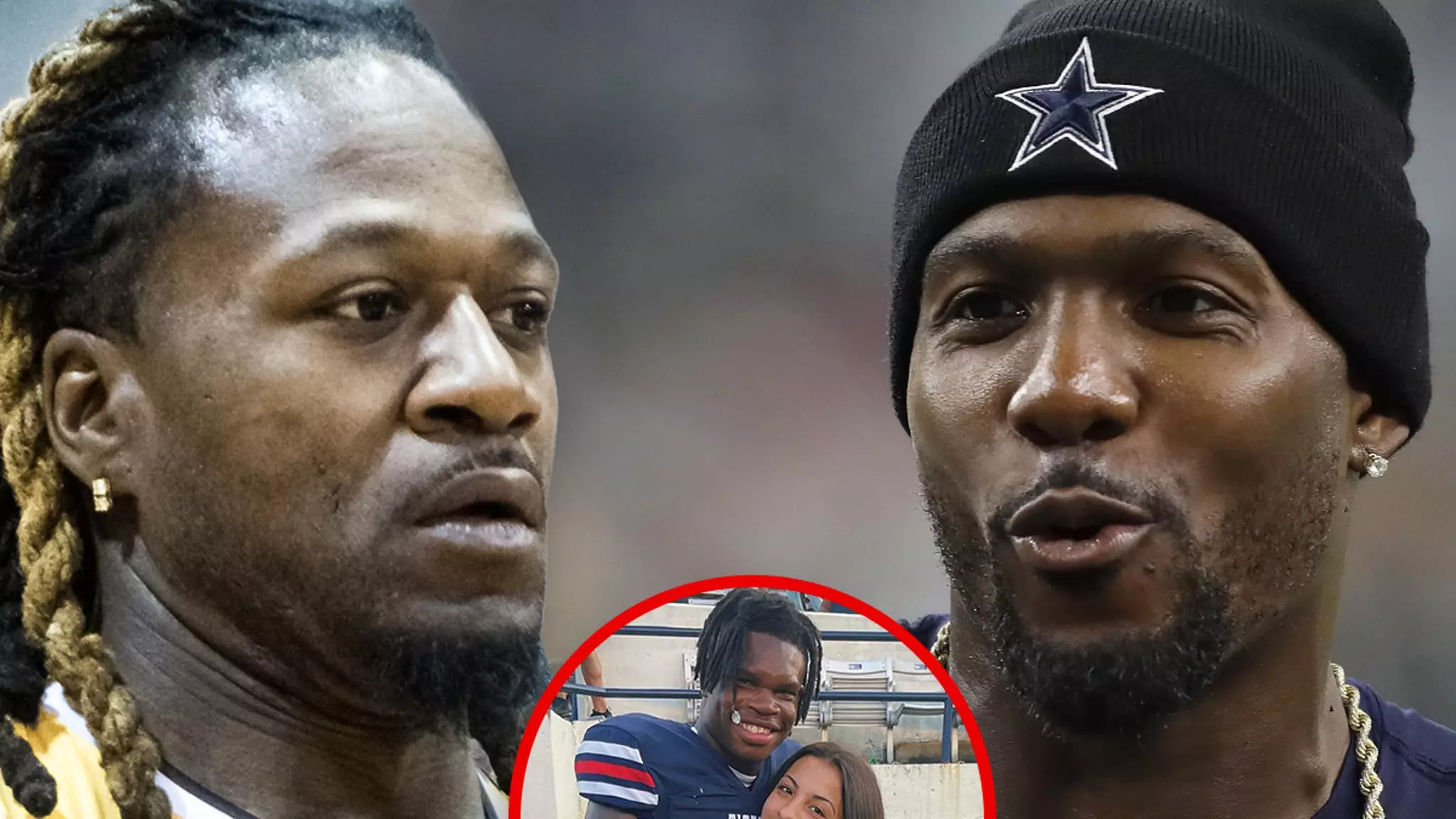The private lives of athletes often find themselves under an unforgiving microscope, prompting public scrutiny and unwarranted opinions about their personal relationships. In recent events, NFL commentator Pacman Jones voiced his discontent over the incessant commentary surrounding rising star Travis Hunter and his fiancée, Leanna Lenee. The situation escalated when former Dallas Cowboys wide receiver Dez Bryant dared to suggest that Hunter should reconsider his relationship choices. Jones passionately defended Hunter, insisting that comments from outside parties have no place in personal matters that only the individuals involved can truly understand.
By candidly telling Bryant to “shut the f*** up,” Jones portrayed a sentiment that finds resonance among numerous athletes who feel victimized by unsolicited opinions. He emphasized the absurdity of fellow athletes using social media to critique personal affairs, especially when they scarcely know the intricacies of the relationship in question. “This is what he like!” Jones asserted, reiterating the point that the dynamics between Hunter and Lenee are their own and should not be fodder for public debate. This perspective challenges the normative behavior within sports culture, where personal choices often become the subject of discussion among fans and analysts alike.
Jones’s defense of Hunter reflects a growing pattern among athletes who push back against public commentary on their lives. The scrutiny that comes with fame can often lead to mental strain, and athletes are increasingly vocal about demanding respect for their personal decisions. They contend that, without firsthand knowledge, external opinions can perpetuate a culture of misunderstanding and judgment.
The fervor surrounding Hunter and Lenee’s relationship illustrates a broader issue in both media and sports culture: the relentless examination of personal relationships in the public eye. Social media has facilitated this trend, enabling individuals like Bryant to voice their critiques to millions almost instantaneously. Unfortunately, this contributes to a toxic environment where athletes are constantly judged not only for their performance on the field but also for their life choices off it.
Furthermore, Jones’s remarks highlight the inconsistencies in the nature of discourse about athletes. While many fans celebrate the triumphs of these individuals, the same enthusiasm often transforms into unwarranted judgment regarding their personal lives. This leaves athletes with the burden of navigating both public expectation and personal authenticity, creating an unneeded strain on their mental well-being.
As the conversation around Travis Hunter and Leanna Lenee exemplifies, there’s a clear need for viewers and analysts alike to exercise restraint in their opinions about athletes’ personal lives. Pacman Jones’s passionate stance serves as a reminder that no one truly knows the nuances of another’s relationship; hence, unsolicited advice should be curtailed. A culture shift is necessary—one that promotes understanding and respect rather than judgment and unsolicited critique. Athletes deserve their privacy, and perhaps it is time the rest of us learn to honor that.

